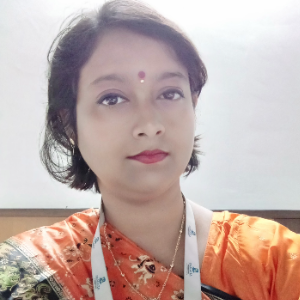Title : Futuristic transformation of herbal industry: Sustainable soilless herb production with hydroponics and aeroponics
Abstract:
The herbal sector is undergoing a paradigm change towards sustainability, demanding novel techniques to assure a steady supply of high-quality raw materials. This study provides a disruptive approach for meeting the demands of the herbal sector by integrating hydroponics and aeroponics in soilless plant production. Traditional farming practises have frequently put pressure on the environment, resulting in deforestation and habitat degradation, as well as concerns about herb scarcity. Hydroponics and aeroponics, on the other hand, provide a sustainable alternative that has the potential to drastically reduce the industry's environmental footprint. These approaches use nutrient-rich fluids and a controlled atmosphere to reduce water consumption and eliminate the need for chemical pesticides. Furthermore, they allow for year-round cultivation, increasing the dependability and regularity of herbal raw material output. The benefits of soilless agriculture go beyond environmental benefits; they also provide superior herb quality by allowing plants to thrive in optimal settings free of soilborne diseases and contaminants. Furthermore, these procedures allow for more control over nutrient intake and growth factors, resulting in plants with enhanced therapeutic characteristics. This study investigates the application of the use of hydroponics and aeroponics in commercially important herbs like Hemidesmus indicus, Bacopa monnieri, Stevia rebaudiana, Hemidesmus indicus Withania somnifera and Coleus forskohlii with high market demand in pharmaceutical, nutraceutical and cosmetic industry. The findings shed light on the potential of using soilless plant production for bio-stimulation as a cost-effective and sustainable method of increasing lead metabolites in the selected plants, consequently benefiting the pharmaceutical and nutraceutical industries.
Audience Take Away Notes:
- By implementing cutting-edge methods and industry best practices from hydroponic and aeroponic systems, the audience will be able to improve the yield, quality, and sustainability of their herb production and establish their companies as leaders in the herbal market
- With this knowledge, the audience will be better equipped to apply innovative, sustainable growing techniques that raise the quality and production of their herbs, increasing their productivity and competitiveness in the herbal market
- Other faculty members can use these insightful and useful findings into their own research or teaching to further the fields of sustainable agriculture and creative growing methods
- This presentation provides designers with workable ways to improve and simplify herb cultivation methods, increasing production's sustainability and yield
- Indeed, this talk will offer fresh insights and cutting-edge methods to enhance the precision and effectiveness of creating long-term soilless herb farming systems
- Additional benefits include Reduced water use, year-round production possibilities, improved herb potency and quality, and possible cost savings in herb cultivation are further advantages


